December 6 stands as one of history’s most eventful days, witnessing the rise and fall of empires, groundbreaking discoveries, and moments that shaped our modern world across centuries of human achievement.

Politics and Government Events on December 6
1904 – Theodore Roosevelt Articulates Monroe Doctrine Corollary

President Theodore Roosevelt boldly expanded American foreign policy by proclaiming his “Corollary” to the Monroe Doctrine. The declaration asserted America’s right to intervene in Latin American affairs when governments proved unstable or incapable.
This policy shift fundamentally transformed the United States from a regional power into a hemispheric policeman. Roosevelt’s doctrine would influence American interventions across Latin America for decades to come.
1917 – Finland Declares Independence from Russian Empire
The Finnish Parliament courageously voted to break free from centuries of Russian rule during the chaos of the Russian Revolution. This historic declaration marked the birth of modern Finland as a sovereign nation.
The independence proclamation came at a perfect moment when Russia was too weakened by internal strife to resist. Finland’s bold move inspired other Baltic nations to seek their own freedom from Russian domination.
1921 – Anglo-Irish Treaty Signed in London
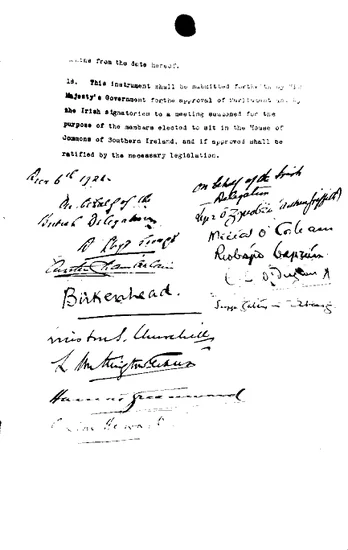
British and Irish representatives reached a momentous agreement that would reshape the relationship between the two nations. The treaty negotiations had stretched for months amid intense political pressure from both sides.
This landmark accord established the framework for Irish self-governance while maintaining ties to the British Crown. The treaty’s signing set the stage for the partition of Ireland and the creation of the Irish Free State.
1978 – Spain Ratifies New Constitution
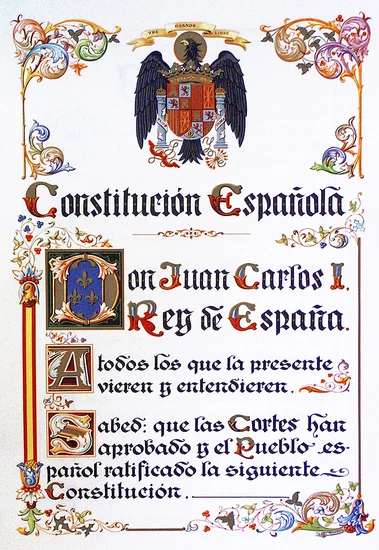
Spanish citizens overwhelmingly approved their new democratic constitution in a national referendum, cementing the country’s transition from dictatorship. The document enshrined fundamental rights and freedoms that had been suppressed under Franco’s regime.
This constitutional victory marked Spain’s successful transformation into a modern European democracy. The referendum’s success demonstrated the Spanish people’s strong commitment to democratic governance and human rights.
1998 – Hugo Chávez Wins Venezuelan Presidential Election
Venezuelan voters elected Hugo Chávez as president, launching a political revolution that would transform the country for decades. Chávez’s populist campaign promised to redistribute wealth and challenge traditional power structures.
His electoral victory marked the beginning of the “Bolivarian Revolution” in Venezuela. Chávez’s charismatic leadership style and socialist policies would fundamentally alter Venezuela’s political landscape and international relations.
2017 – Trump Recognizes Jerusalem as Israel’s Capital

President Donald Trump made a controversial announcement recognizing Jerusalem as Israel’s capital, reversing decades of American foreign policy. The decision sparked international debate and protests across the Middle East.
This diplomatic shift marked a significant departure from previous administrations’ approach to the Israeli-Palestinian conflict. Trump’s declaration fulfilled a campaign promise while complicating peace negotiations in the region.
Military and Naval History on December 6
1916 – Central Powers Capture Bucharest
German and Austrian forces triumphantly entered the Romanian capital during World War I, dealing a devastating blow to the Allied cause. The capture of Bucharest represented a major strategic victory for the Central Powers in the Eastern Front.
Romanian forces had put up fierce resistance but were ultimately overwhelmed by superior German military tactics. The fall of Bucharest forced the Romanian government to flee and significantly weakened Allied positions in southeastern Europe.
1917 – USS Jacob Jones Becomes First American Destroyer Sunk
German submarine SM U-53 torpedoed the USS Jacob Jones off the English coast, marking a tragic milestone in American naval history. The destroyer became the first American warship of its class to be sunk by enemy action during World War I.
This attack demonstrated the deadly effectiveness of German U-boat warfare against American vessels. The sinking of the Jacob Jones intensified American resolve to combat the German submarine threat in the Atlantic.
1941 – Camp X Opens in Canada
Allied intelligence services established the secretive Camp X training facility in Ontario to prepare covert agents for dangerous missions. The camp would train hundreds of spies and saboteurs throughout World War II.
Camp X became a crucial hub for Allied intelligence operations, teaching everything from explosives handling to silent killing techniques. The facility’s graduates would go on to conduct vital missions behind enemy lines across occupied Europe.
1971 – Pakistan Severs Relations with India
Pakistan dramatically cut all diplomatic ties with India, escalating tensions that would soon explode into full-scale war. The decision came amid growing conflict over East Pakistan’s independence movement.
This diplomatic rupture marked the point of no return in the crisis that would become the Indo-Pakistani War of 1971. The severing of relations preceded the creation of Bangladesh and reshaped the balance of power in South Asia.
Science and Discovery Milestones on December 6
1912 – Nefertiti Bust Discovered

German archaeologist Ludwig Borchardt made one of history’s most significant archaeological discoveries when he unearthed the famous bust of Queen Nefertiti. The limestone sculpture revealed the stunning beauty of the ancient Egyptian queen.
This remarkable find provided unprecedented insight into ancient Egyptian artistry and royal portraiture. The bust’s discovery sparked international fascination with Nefertiti and became one of the world’s most recognizable ancient artifacts.
1957 – Vanguard TV3 Rocket Explodes on Launch
America’s first attempt to launch a satellite into Earth orbit ended in spectacular failure when the Vanguard rocket exploded on the launch pad. The embarrassing mishap occurred just two months after the Soviet Union’s successful Sputnik launch.
The explosion was broadcast live on national television, earning the failed satellite the nickname “Kaputnik” from the press. This setback intensified American determination to catch up with Soviet space achievements and accelerated the space race.
1967 – First Human Heart Transplant in United States
Dr. Adrian Kantrowitz performed the groundbreaking first human heart transplant surgery in the United States at Maimonides Medical Center in Brooklyn. The surgical team worked tirelessly to save the life of an 18-day-old infant.
This medical milestone followed just three days after the world’s first heart transplant in South Africa. Although the infant patient survived only six hours, the surgery demonstrated American medical capabilities and advanced cardiac surgery techniques.
2006 – Mars Water Discovery Announced
NASA revealed stunning photographs from the Mars Global Surveyor suggesting the presence of liquid water on the Red Planet. The images showed what appeared to be recent water flows down crater walls and canyon sides.
This discovery revolutionized our understanding of Mars’ potential for supporting life. The evidence of liquid water suggested that Mars might still be geologically active and could harbor microbial life forms.
Cultural and Arts Events on December 6
1933 – Ulysses Censorship Case Decided
Federal Judge John M. Woolsey issued a landmark ruling in United States v. One Book Called Ulysses, declaring James Joyce’s controversial novel was not obscene. The decision marked a crucial victory for freedom of expression and literary rights.
Woolsey’s thoughtful opinion analyzed the book’s artistic merit rather than focusing solely on its explicit content. This precedent-setting case opened the door for other banned literary works to be published and distributed freely in America.
1969 – Altamont Free Concert Tragedy

The Rolling Stones’ free concert at Altamont Speedway in California turned deadly when Hells Angels security guards stabbed eighteen-year-old Meredith Hunter to death. The violent incident shattered the peace and love mythology of the 1960s counterculture movement.
The tragic event was captured on film and became a symbol of the era’s dark side. Altamont marked the end of the idealistic 1960s and demonstrated how quickly celebration could turn to violence.
1956 – Hungary-USSR Water Polo Match
A brutal water polo match between Hungary and the Soviet Union at the Melbourne Olympics became known as the “Blood in the Water” match. The game occurred against the backdrop of the Hungarian Revolution being crushed by Soviet tanks.
Hungarian players fought with desperate intensity, and the pool literally turned red with blood from injuries sustained during the violent match. Hungary’s victory became a powerful symbol of resistance against Soviet oppression and captured worldwide attention.
Religious and Social Events on December 6
1926 – Babri Masjid Demolished
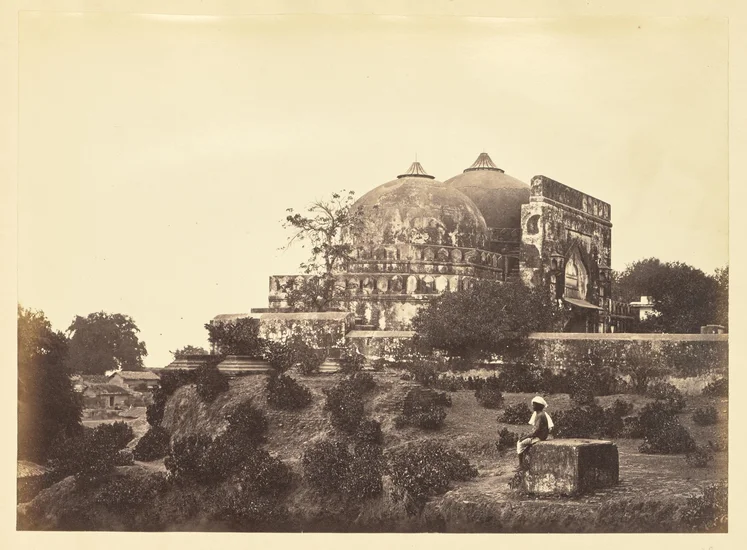
Hindu activists destroyed the historic Babri Masjid mosque in Ayodhya, India, triggering massive communal riots across the country. The destruction of the 16th-century mosque inflamed religious tensions between Hindus and Muslims throughout India.
The demolition resulted in over 1,500 deaths in subsequent riots and marked one of the darkest chapters in modern Indian history. This tragic event highlighted the deep-seated religious divisions that continue to challenge India’s secular democracy.
1989 – École Polytechnique Massacre
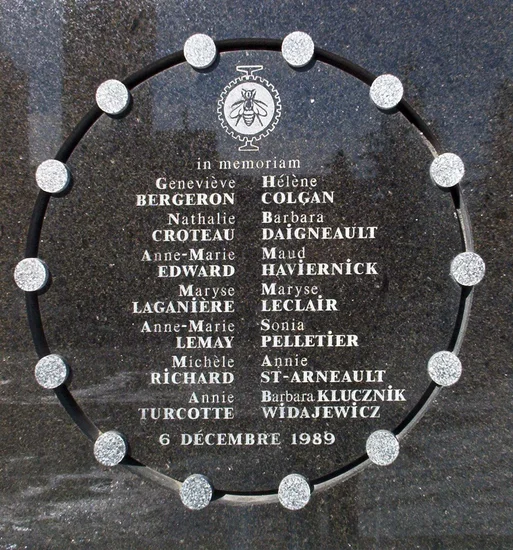
Anti-feminist gunman Marc Lépine murdered 14 young women at Montreal’s École Polytechnique engineering school in Canada’s worst mass shooting. The killer specifically targeted women, revealing his hatred of feminism and women’s advancement in traditionally male fields.
This horrific tragedy shocked Canada and sparked nationwide discussions about violence against women. The massacre led to significant changes in Canadian gun laws and established December 6 as a national day of remembrance for violence against women.
1922 – Troubles Bomb Attack
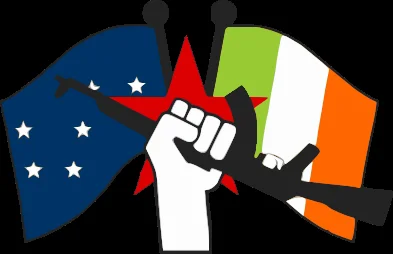
The Irish National Liberation Army detonated a bomb at a pub in Ballykelly, Northern Ireland, killing eleven British soldiers and six civilians. The attack demonstrated the escalating violence during the height of the Troubles.
This devastating bombing intensified the cycle of violence between republican and loyalist paramilitaries. The Ballykelly attack highlighted the tragic cost of the Northern Ireland conflict on both military personnel and innocent civilians.
Business and Economic Events on December 6
1995 – Saquinavir Approved for AIDS Treatment
The FDA approved Saquinavir, the first protease inhibitor drug for treating HIV/AIDS, marking a revolutionary breakthrough in combating the epidemic. This groundbreaking medication offered new hope to millions of patients worldwide.
Within two years of Saquinavir’s approval, annual AIDS deaths in the United States plummeted from over 50,000 to approximately 18,000. The drug’s success launched the era of highly active antiretroviral therapy and transformed AIDS from a death sentence to a manageable chronic condition.
1999 – Recording Industry Sues Napster
The Recording Industry Association of America filed a landmark lawsuit against peer-to-peer file-sharing service Napster, alleging massive copyright infringement. The case would reshape the digital music industry and establish important precedents for intellectual property protection.
This legal battle marked the beginning of the music industry’s struggle to adapt to digital technology. The Napster case highlighted the tension between technological innovation and traditional business models in the entertainment industry.
1928 – Colombian Government Suppresses United Fruit Strike
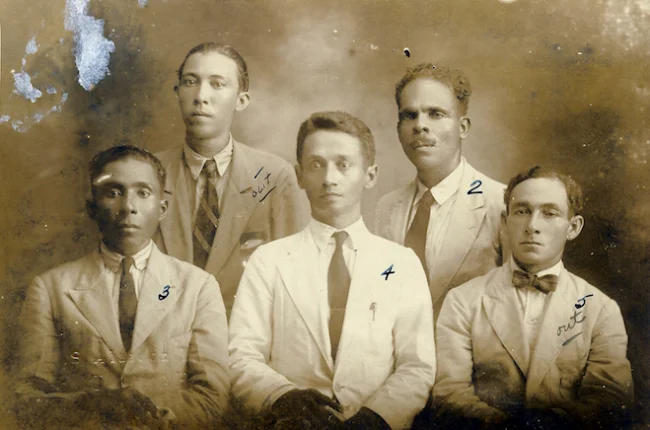
Colombian military forces violently ended a month-long strike by United Fruit Company workers, resulting in numerous deaths. The government’s brutal response demonstrated the powerful influence of American corporations in Latin American politics.
This tragic event inspired Gabriel García Márquez’s famous novel “One Hundred Years of Solitude” and became a symbol of American economic imperialism. The massacre highlighted the exploitation of Latin American workers by multinational corporations.
Transportation and Infrastructure on December 6
1907 – Monongah Mine Explosion
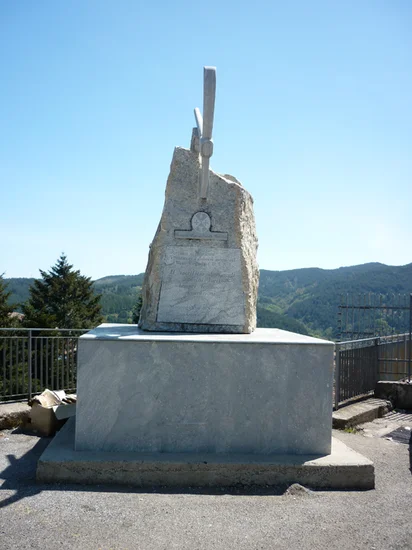
A catastrophic explosion at the Monongah coal mine in West Virginia killed 362 workers in one of America’s deadliest industrial disasters. The blast occurred during the morning shift change, trapping hundreds of miners underground.
This tragedy highlighted the dangerous working conditions in American mines and sparked calls for improved safety regulations. The Monongah disaster became a catalyst for mine safety reforms and worker protection legislation.
1917 – Halifax Explosion
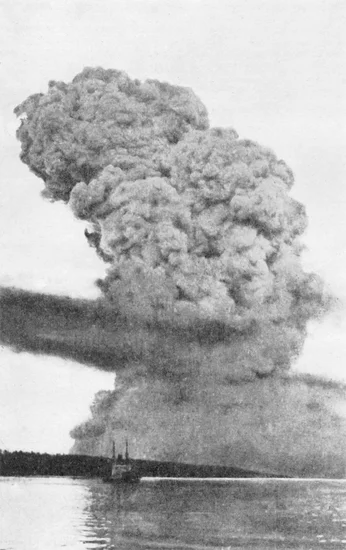
A massive munitions explosion in Halifax Harbor, Nova Scotia, killed more than 1,900 people and destroyed much of the city. The blast occurred when two ships collided, creating the largest artificial explosion in human history up to that time.
The explosion shattered windows 60 miles away and created a tsunami that devastated the waterfront. Halifax’s destruction demonstrated the deadly power of modern explosives and led to improved shipping safety protocols for dangerous cargo.
1990 – Italian Air Force Jet Crashes into School
An abandoned Italian Air Force jet crashed into a high school near Bologna, killing 12 students and injuring 88 others. The pilot had ejected after experiencing an onboard fire, but the unmanned aircraft continued flying before hitting the school.
This tragic accident highlighted the risks of military aviation near populated areas. The crash led to changes in emergency procedures for military aircraft experiencing technical difficulties over civilian areas.
Sports and Recreation on December 6
1975 – Gerald Ford Confirmed as Vice President
The House of Representatives voted 387-35 to confirm Gerald Ford as Vice President under the Twenty-fifth Amendment. Ford’s confirmation followed the resignation of Vice President Spiro Agnew and made him the first unelected Vice President in American history.
Ford’s appointment marked an unprecedented moment in American constitutional history. His confirmation process demonstrated the strength of American democratic institutions during the Watergate crisis and established important precedents for future succession scenarios.
2015 – Venezuelan Opposition Wins Parliamentary Elections
Venezuela’s opposition coalition achieved a stunning victory in parliamentary elections, breaking the United Socialist Party’s 17-year control of the legislature. The election results reflected growing public dissatisfaction with the country’s economic crisis and authoritarian governance.
This democratic triumph offered hope for political change in Venezuela despite ongoing economic hardships. The opposition’s victory demonstrated the resilience of democratic institutions even under severe pressure from authoritarian governments.
2005 – Iranian Military Transport Crashes
An Iranian Air Force C-130 transport aircraft crashed into a residential apartment building in Tehran, killing all 94 people aboard and 12 on the ground. The crash occurred in bad weather conditions as the aircraft approached the airport.
This tragic accident highlighted safety concerns with Iran’s aging military aircraft fleet. The crash prompted discussions about the need for modernizing Iran’s aviation infrastructure and improving flight safety protocols.
Notable Births on December 6
1920 – Dave Brubeck Born
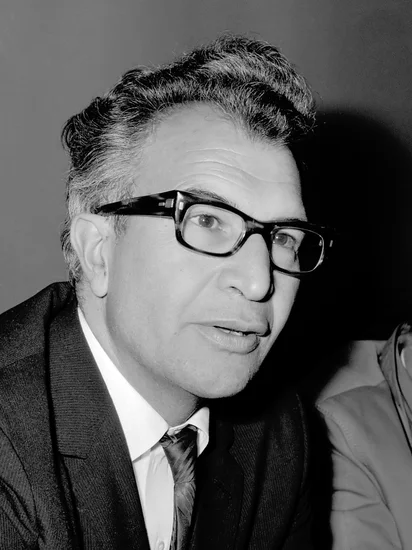
American jazz pianist and composer Dave Brubeck entered the world in Concord, California, destined to become one of jazz’s most innovative artists. His early exposure to classical music and jazz would shape his unique compositional style.
Brubeck revolutionized jazz with his experimental time signatures and complex harmonies. His album “Time Out” featuring “Take Five” became one of the best-selling jazz albums of all time.
1920 – George Porter Born

English chemist George Porter was born in Stainforth, Yorkshire, beginning a life dedicated to scientific discovery. His fascination with chemistry emerged during his school years and guided his academic pursuits.
Porter would win the Nobel Prize in Chemistry for his pioneering work in flash photolysis. His revolutionary techniques allowed scientists to study extremely fast chemical reactions for the first time.
1957 – Andrew Cuomo Born

American politician Andrew Cuomo was born in Queens, New York, into a prominent political family. His father Mario Cuomo’s governorship of New York provided early exposure to public service and political leadership.
Cuomo would follow in his father’s footsteps to become New York’s 56th Governor. His leadership during the COVID-19 pandemic brought him national attention and political prominence.
1959 – Satoru Iwata Born

Japanese game programmer and businessman Satoru Iwata was born in Sapporo, Hokkaido, with a passion for technology and gaming. His early programming skills would lead him to HAL Laboratory and eventually Nintendo.
Iwata transformed Nintendo as its president, overseeing the development of revolutionary gaming systems. His leadership brought us the Nintendo DS and Wii, making gaming accessible to broader audiences worldwide.
1994 – Giannis Antetokounmpo Born

Greek-Nigerian basketball player Giannis Antetokounmpo was born in Athens, Greece, to Nigerian immigrant parents. His remarkable height and athleticism became apparent during his teenage years in Greece.
Antetokounmpo developed into one of the NBA’s most dominant players with the Milwaukee Bucks. His incredible versatility and work ethic earned him multiple MVP awards and an NBA championship.
Notable Deaths on December 6
1956 – B. R. Ambedkar Dies
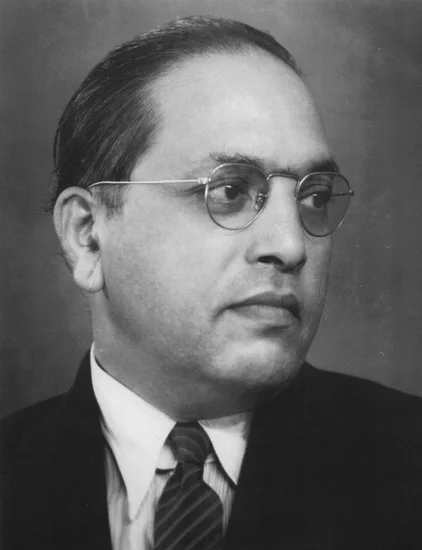
Indian economist and politician B. R. Ambedkar passed away in New Delhi, ending a lifetime dedicated to fighting social injustice. As India’s first Minister of Justice, he championed the rights of Dalits and other marginalized communities.
Ambedkar’s greatest achievement was drafting India’s Constitution, which enshrined equality and justice for all citizens. His legacy continues to inspire social reform movements across India and beyond.
1988 – Roy Orbison Dies

American singer-songwriter Roy Orbison died suddenly of a heart attack in Hendersonville, Tennessee, silencing one of rock’s most distinctive voices. His operatic vocal range and dramatic ballads had influenced countless musicians throughout his career.
Orbison’s songs like “Oh, Pretty Woman” and “Crying” became timeless classics. His recent collaboration with the Traveling Wilburys had introduced his music to a new generation of fans.
1993 – Don Ameche Dies

American actor Don Ameche passed away in Scottsdale, Arizona, after a distinguished career spanning radio, film, and television. His versatile performances entertained audiences for over six decades.
Ameche won an Academy Award for Best Supporting Actor late in his career for “Cocoon.” His charming screen presence and professional dedication made him one of Hollywood’s most respected performers.
2000 – Werner Klemperer Dies

German-American actor Werner Klemperer died in New York City, best remembered for his iconic role as Colonel Klink in “Hogan’s Heroes.” Ironically, this Jewish refugee from Nazi Germany became famous for playing a bumbling Nazi officer.
Klemperer’s portrayal of Colonel Klink helped make the show a television classic. His comedic timing and character development brought depth to what could have been a simple caricature.
2014 – Ralph H. Baer Dies
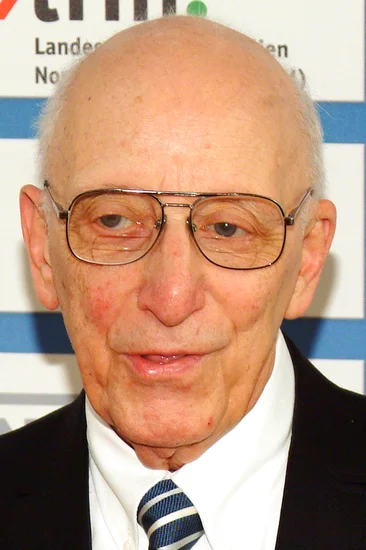
German-American inventor Ralph H. Baer passed away in Manchester, New Hampshire, after revolutionizing home entertainment forever. Known as the “Father of Video Games,” he created the first commercial home video game console.
Baer’s Magnavox Odyssey launched the home video game industry in 1972. His innovations laid the foundation for the multi-billion dollar gaming industry that continues to evolve today.
Holidays and Observances on December 6
Independence Day in Finland
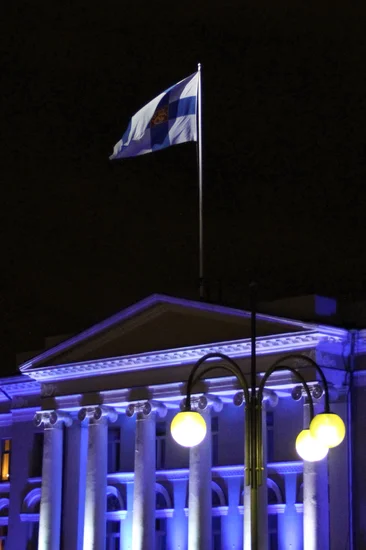
Finland celebrates its Independence Day on December 6, commemorating the nation’s declaration of independence from Russia in 1917. The holiday honors Finland’s brave decision to break free from centuries of foreign rule during the chaos of the Russian Revolution.
Finnish citizens mark this important day with flag ceremonies, church services, and the traditional Independence Day Reception at the Presidential Palace. The celebration reflects Finland’s proud heritage and its successful development into a modern Nordic democracy.
Saint Nicholas Day

Saint Nicholas Day is celebrated internationally on December 6, when Saint Nicholas leaves small presents in children’s shoes. This beloved tradition honors the 4th-century bishop known for his generosity and gift-giving to the poor.
The holiday connects modern Christmas traditions to their historical roots in Christian charity and kindness. Saint Nicholas Day celebrations vary by country but consistently emphasize the joy of giving and caring for others.
Constitution Day in Spain
Spain observes Constitution Day on December 6, marking the anniversary of the 1978 constitutional referendum. This national holiday celebrates Spain’s successful transition to democracy after decades of authoritarian rule under Francisco Franco.
The Spanish Constitution established fundamental rights and freedoms while creating a framework for democratic governance. Constitution Day represents Spain’s commitment to democratic values and its integration into the European community of nations.
National Day of Remembrance and Action on Violence Against Women in Canada

Canada observes the National Day of Remembrance and Action on Violence Against Women on December 6, commemorating the victims of the 1989 École Polytechnique massacre. This solemn day honors the 14 women killed in Montreal and all victims of gender-based violence.
The observance promotes awareness about violence against women and encourages action to prevent such tragedies. Canadian communities hold vigils, educational events, and advocacy campaigns to support survivors and promote gender equality.
